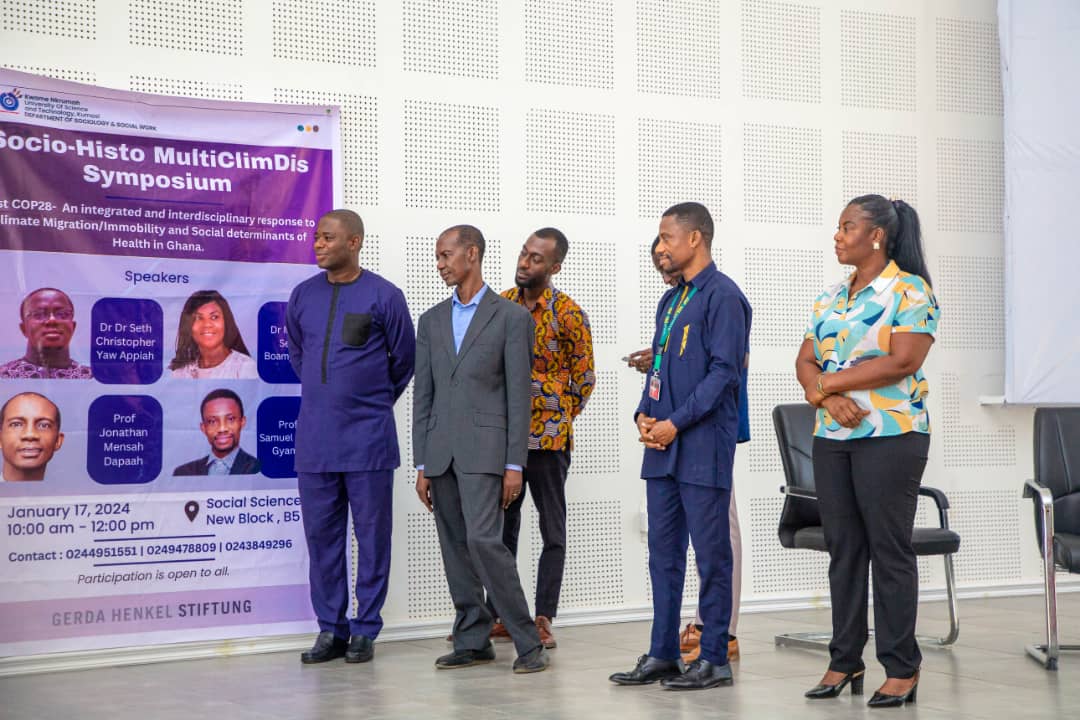
The International Organisation for Migration (IOM), Ghana, has urged government to expedite implementation of the Ghana National Migration Policy to ensure coordination in migration matters and activities.
In the absence of the roll-out of the policy developed in 2016, Mr Eric Akomanyi, Migration and Development Project Assistant, IOM Ghana, argued that the country was unable to maximise the gains from migration including remittances in-flow and Diaspora capital to support development programmes.
"There is a Migration Unit at the Ministry of the Interior. The Ministry of Gender, Children and Social Protection have the anti-human trafficking unit, which is a migration issue. The Ministry of Foreign Affairs and Regional Integration have the Diaspora Affairs Bureau. Ministry of Finance and Bank of Ghana are also working on remittances, which are migrated related. Once these units are working independently and without effective coordination, the country loses out and is unable to improve remittances in-flow and tap capital from the Diaspora to support flagship programmes," he stated.
Mr Akomanyi was speaking yesterday in Accra during a seminar on Migration and Social Transformation in Ghana, organised by the International Water Management Institute (IWMI) in collaboration with the Centre for Migration Studies, University of Ghana, Legon.
As part of its implementation, he said a Ghana National Commission on Migration was to be established to coordinate and implement the activities and programmes outlined in the policy.
Although the Medium Term Development Policy Framework by the government outlines the action plans by some Ministries to address migration challenges and mainstream migration issues into all sectoral agenda, Mr Akomanyi said the National Policy on Migration was comprehensive in ensuring that the country realises the positive impact of migration.
Averagely, Ghana, he said, was recording more than US$2 billion dollars per year from remittances and urged for more aggregators into the financial space to drive down cost in remittance transactions to encourage more migrants to remit to relatives in the country.
Senior Researcher-Social and Institutional Scientist, IWMI, Dr. Everisto Mapedza, said migration offers an opportunity to expand and improve Ghana's economy through remittances and ensures transfer of skills and knowledge acquired by migrants to the citizenry.
It was an avenue to expand the local economy by creating opportunities and improving the agricultural value chain noting that the "IWMI is looking at farmers who are producing their agricultural produce and support them in value addition and providng the enabling electricity and solar power for small scale businesses."
He said IWMI was further pursuing the use of modern technologies in supporting indigenes who engage in agricultural production in rural communities to enhance their livelihoods and as well create job opportunities for others the value addition.
Professor Joseph Teye, Director Centre for Migration Studies, University of Ghana, observed that rural-urban migrations were high in Ghana due to vibrations in resources as some areas were more developed than other area.
He said poor transportation and the lack of good market for farm produce had led to poverty which left rural folks with no option than to migrate to urban centres in search of better living conditions.
He said social drivers such as education, marriages and demographic driver such as high fertility rates in rural areas had both negative and positive impacts on the economy.
"Urban poverty is on the increase but rural urban migration is contributing is contributing to poverty reduction in Ghana, while consequently reducing the labour force to work on farms, this poses a threat to our food security as a people", Prof Teye stated.
Read Full Story





















Facebook
Twitter
Pinterest
Instagram
Google+
YouTube
LinkedIn
RSS